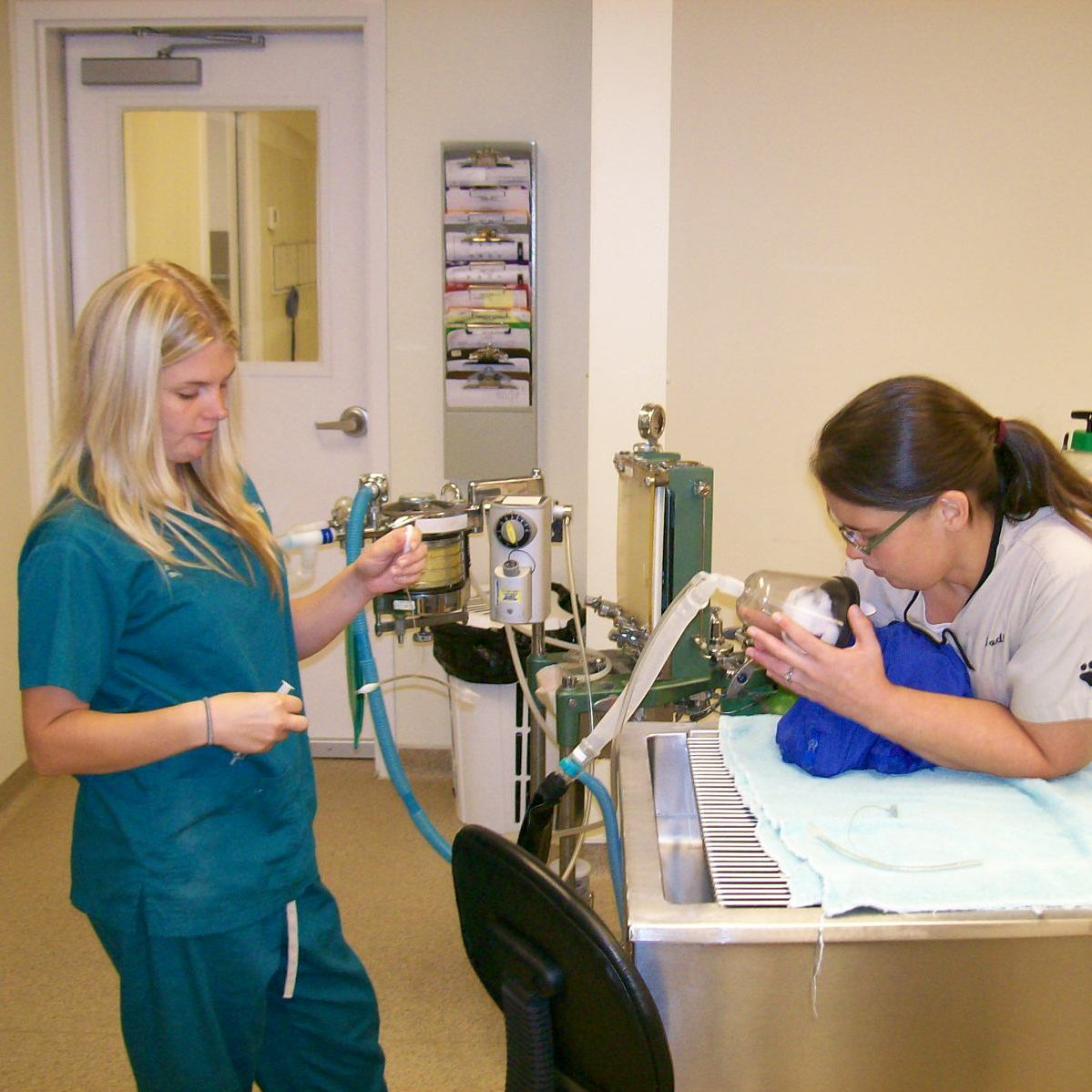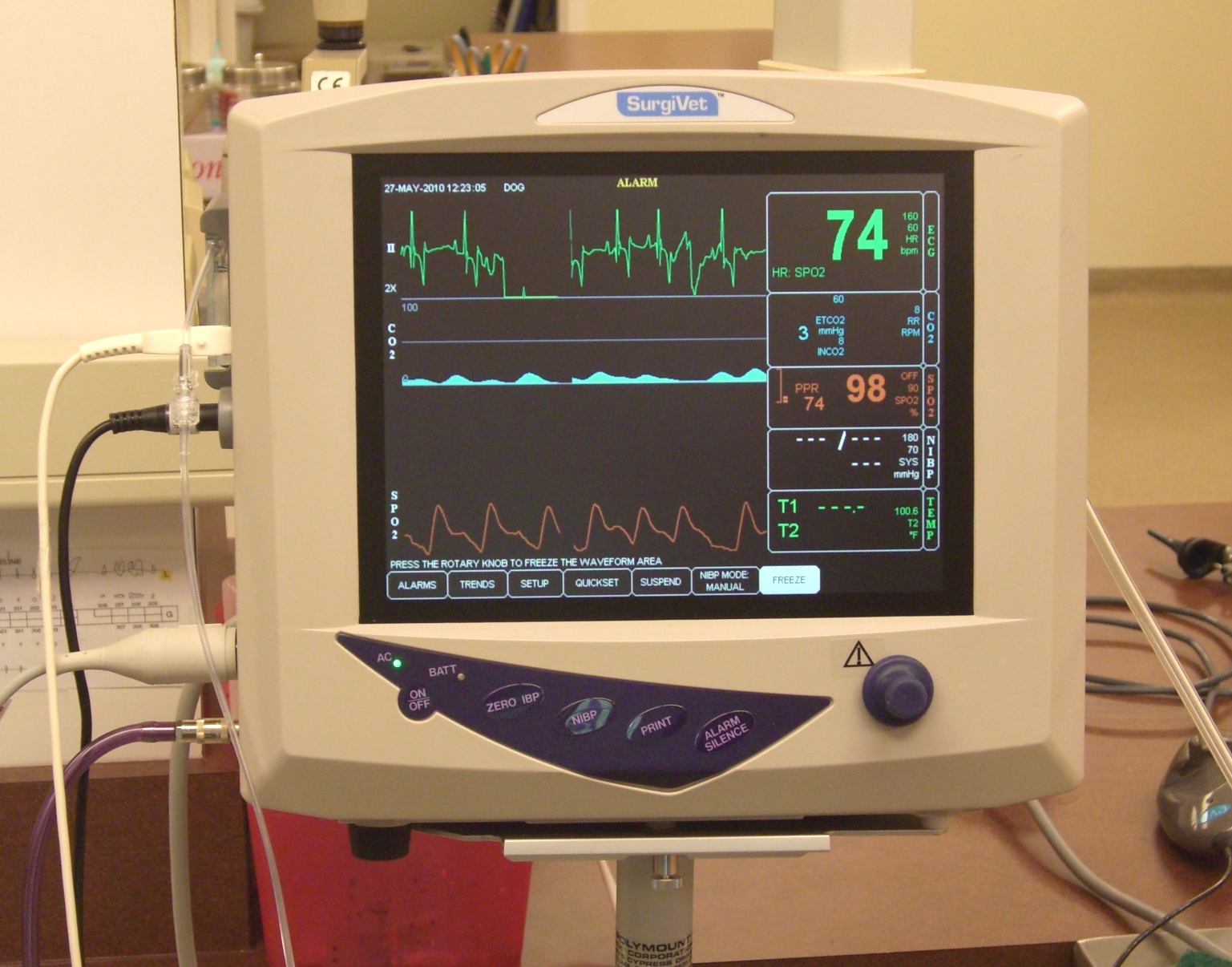Anesthesia
Many pets go under anesthesia at least once in their lives. Here at Union Pet Clinic we use the most current safety protocol recommended by the American Animal Hospital Association. We also use a gas anesthesia, just like in human hospitals, called Sevoflurane. It is the safest choice in gas anesthesia currently available.

Just like in human medicine, anesthesia has its risks. To help reduce these risks we require a few tests before we get started. First the doctor does a physical exam the day of surgery to make sure nothing new has developed. We also check their heart with an electrocardiogram (ECG) to make sure the heart is working properly.
To check for underlying conditions that may interfere with the surgery, we do a few blood test. One is a Complete Blood Count which checks the levels of blood cells to make sure you pet is able to fight off infections and heal properly after surgery. The other is a Chemistry Panel that checks the liver and kidneys to make sure they can process the anesthesia and remove it from the body.
If everything is within normal limits we can proceed with surgery. To help reduced risk during surgery we place an IV catheter and supply your pet with fluids. This helps keep your pet hydrated during and after the procedure, which in turn keeps their blood pressure up. The catheter also give us a port directly in to the vein in case we need to administer emergency drugs.
Surgery
We offer many types of surgical procedures. We normally do surgeries Monday thru Friday. Orthopedic Surgeries are referred to our Erlanger Office. Please call ahead to schedule appointments.

- Spay and Neuter
- Declaw (front only or all four feet)
- Ear Crop (8-11 weeks of age)
- Tail Docks and Dewclaw Removal (3-5 days old)
- Tumor/Mass/Growth Removals
- Ear Flushing
- Endoscopy
- Exploratory Surgeries
- Orthopedic Surgeries
- Cruciate Ligament Repair: TTA/Tightrope
- Patellar Luxation Repair
- Fracture Repair: Plating, Pinning, External Fixators
- Back Surgery
After surgery your pet will recover in a nice warm comfy cage. Most surgeries will go home later that afternoon but some surgeries take longer to recover. Feel free to bring food from home or a special blanket or toy if your pet is going to stay overnight.
